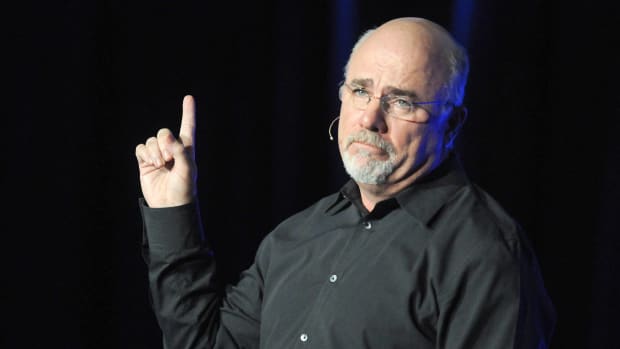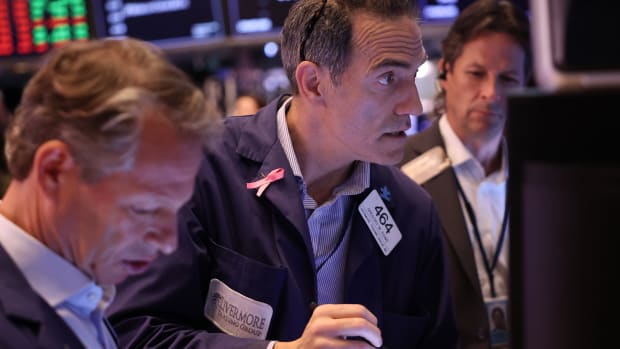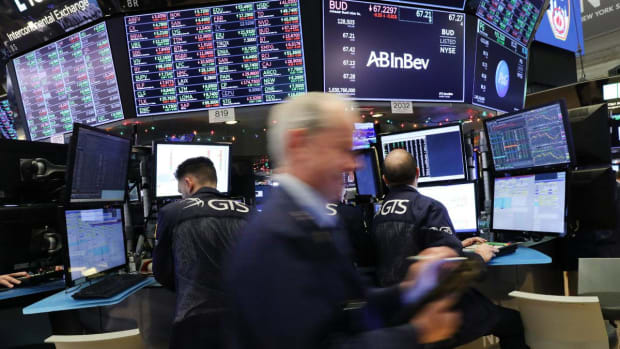
Why Fund Costs Are Falling
NEW YORK (TheStreet) -- Fund investors have been dumping expensive mutual funds and gravitating toward low-cost choices.
According to a recent study by the Investment Company Institute, expense ratios for the average investor in equity funds dropped from 1.0% in 2003 to 0.79% last year.
Part of the decline can be attributed to the fact that shareholders have become savvier about shopping for bargains.
But much of the change is due to an upheaval in the operations of financial advisers. Because of a big change in how they are compensated, more advisers have been steering clients toward the cheapest funds.
In the past, advisers -- who account for half of all mutual fund sales -- often made more money by selling expensive funds.
Where the Next Boom Is Coming From >>
In a typical transaction, the shareholder would pay a load, or sales commission, of 5%. When a client invested $10,000 into a fund, $500 of the total went to the adviser.
In some cases, the advisers got additional fees and incentives for selling the load funds. Many load funds had steep annual expense ratios, but that didn't discourage advisers from recommending the investments.
Advisers had big incentives to collect the up-front commissions, and less reason to worry about the costs that clients faced.
Then in recent years, the compensation system for many advisers changed.
Instead of collecting a sales commission every time a client buys a fund, advisers take flat annual fees that are typically 1% of the assets in an account.
Many advisers now recommend no-load funds, which do not charge commissions. In this new world, an adviser automatically gets paid more as a client's assets increase.
That gives the adviser a clear incentive to make the client wealthier.
To appreciate why assets have been pouring into cheap funds, consider an adviser who is comparing two similar funds for a client.
10 Forces Conspiring Against Your Savings >>
One fund charges an annual expense ratio of 1.5%, while the other charges 0.5%. If the adviser recommends the more expensive fund, he knows that the client will pay 1 percentage point more in fees, which will disappear into the pockets of the fund company.
That reduces the assets in the client's account -- and results in a slimmer annual payment for the adviser.
The changing incentives partly explain why investors have been selling actively managed mutual funds and shifting to index funds with low expense ratios. Index funds now account for 16.4% of all equity fund assets, up from 11.2% in 2005.
Investors have also shifted to exchange-traded funds, which boast low expense ratios. A decade ago, few advisers recommended index funds. Now all the major brokerage firms encourage use of index funds and ETFs.
As more investors shop for index funds, they have been flocking to the cheapest choices. That is pushing down average expense ratios of index funds.
The average investor in equity index funds pays an expense ratio of 0.14%, down from 0.27% in 1998.
With so many investors pinching pennies, are traditional load funds doomed to vanish?
Not necessarily.
In 2011, load funds held $2.4 trillion in assets, vs. $5.2 trillion for no-loads.
Plenty of brokers still sell load funds. And there can be a good case for using them sometimes.
10 Ways Your 401(k) Can Fail You >>
Say a broker recommends a fund that you will put in an IRA and hold indefinitely. It would be cheaper to make a one-time 5% payment instead of paying 1% annually for decades.
Most often, however, you should avoid loads.
Load funds and other expensive choices are likely to continue dwindling. New regulations could hasten the move. Under authority from the Dodd-Frank financial reform law, the
Securities and Exchange Commission
is working to develop new rules for financial advisers.
Under existing standards, brokers need only pick investments that are "suitable" for clients.
By that measure, a broker can recommend an expensive fund as long as it is not obviously inappropriate.
But under proposed new standards, the broker would have to act as a fiduciary and only recommend the very best fund.
Presumably this means that brokers would have some explaining to do if they failed to pick the cheapest fund.
Stan Luxenberg is a freelance writer specializing in mutual funds and investing. He was executive editor of Individual Investor magazine.













